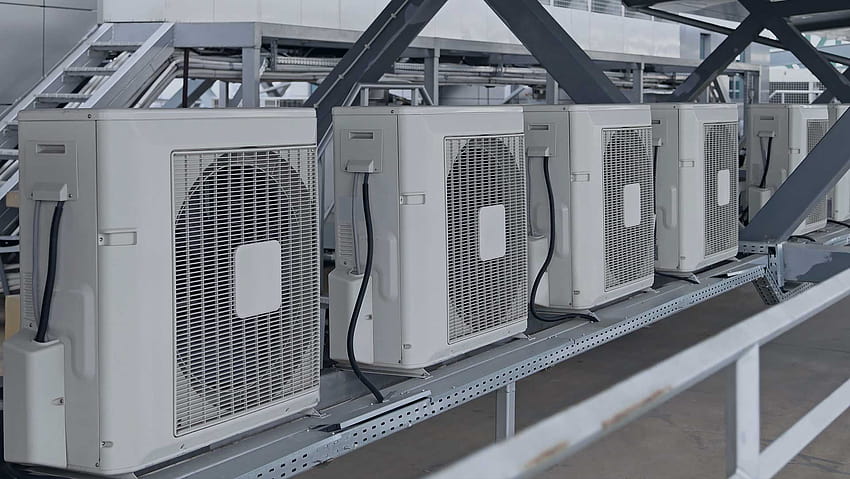Mastering Comfort: The Ultimate Guide to Heating and Air Conditioning
Mastering Comfort: The Ultimate Guide to Heating and Air Conditioning
Blog Article

When it comes to creating a comfortable living environment, heating and air conditioning systems play a crucial role. These systems not only regulate the temperature in our homes but also contribute to our overall well-being. Understanding how they work and knowing how to maintain them can significantly enhance your comfort levels throughout the year. Whether you’re battling the sweltering heat of summer or the biting cold of winter, mastering your heating and air conditioning systems is essential for achieving the perfect indoor climate.
In this ultimate guide, we will delve into the various aspects of heating and air conditioning, covering everything from different types of systems to energy efficiency tips. You will discover how to choose the best system for your home, identify common issues, and implement maintenance practices that can prolong the life of your equipment. By the end of this guide, you will be well-equipped to navigate the world of heating and air conditioning, ensuring that you and your family stay comfortable no matter the season.
Understanding Heating Systems
Heating systems are essential for maintaining comfortable indoor temperatures during colder months. They come in various types, each suited to different needs and preferences. Common systems include central heating, which uses a furnace or boiler to distribute heat throughout a home, and space heaters, which provide localized warmth in specific areas. Familiarizing yourself with these options can help you select the best fit for your living space.
One of the most popular heating methods is forced-air heating. This system uses a furnace to generate heat, which is then circulated through ductwork via a system of fans. Another effective option is radiant heating, where heat is emitted from a warm surface, such as heated floors or wall panels, providing even warmth throughout a room. Understanding the advantages and disadvantages of each system is crucial for making an informed decision.
Reserve Your Spot
When considering the efficiency of heating systems, it's important to look at their energy source. Systems may run on electricity, gas, or oil, and each has its own impact on energy consumption and costs. Energy efficiency ratings, such as the Annual Fuel Utilization Efficiency (AFUE) for furnaces, can guide you in choosing a system that minimizes energy waste while maximizing comfort. Proper maintenance and regular inspections also play a key role in ensuring that your heating system operates effectively and lasts for years to come.
Exploring Air Conditioning Options
When it comes to air conditioning, there are various options available to suit different needs and preferences. Central air conditioning systems are popular for larger homes, as they provide consistent cooling throughout the entire space. These systems use a network of ducts to distribute cool air, making them efficient for maintaining a comfortable temperature in multiple rooms. Additionally, modern central units are often equipped with smart technology that allows for precise control over temperature settings, enhancing both convenience and energy efficiency.
For those seeking more localized cooling solutions, ductless mini-split systems offer flexibility without the need for extensive ductwork. These systems consist of an outdoor compressor and one or more indoor air-handling units that can be placed in individual rooms. This zoned approach allows homeowners to cool specific areas as needed, which can result in energy savings and personalized comfort. Moreover, mini-split systems can also provide heating in colder months, making them a versatile choice for year-round climate control.
Another option worth considering is portable air conditioners, which are ideal for renters or those who may not want to install permanent systems. Portable units are easy to set up and can be moved from room to room as desired. While they may not cool an entire house as efficiently as central or ductless systems, they provide an effective and temporary solution for localized cooling. These units typically come with features such as programmable settings and remote controls, adding to their user-friendliness. Choosing the right air conditioning option depends on your specific requirements, space considerations, and budget.
Enhancing Home Comfort and Efficiency
Heating and air conditioning systems play a crucial role in maintaining a comfortable living environment throughout the year. One of the key strategies to enhance comfort is ensuring that your home is well insulated. Proper insulation helps to retain the desired temperature inside the house, reducing the workload on your heating and cooling systems. This not only improves comfort levels but also leads to significant energy savings.
Regular maintenance of your heating and air conditioning units is essential for optimal performance. This includes changing filters, cleaning ducts, and scheduling professional inspections. Keeping systems well-maintained ensures they operate efficiently, lowers the risk of unexpected breakdowns, and extends their lifespan. Investing time and resources in maintenance can result in a more comfortable home atmosphere and lower utility bills.
Incorporating smart technology can further boost efficiency and comfort in your home. Smart thermostats allow you to control your heating and air conditioning systems remotely, optimizing performance based on your schedule and preferences. Additionally, temperature zoning systems enable you to target specific areas of your home, providing customized comfort while minimizing energy consumption. Embracing these modern solutions can transform your home into a more comfortable and energy-efficient space.
Report this page